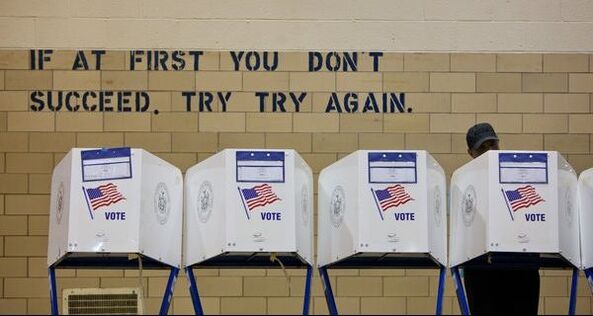
This year, Louisiana’s runoff election is December 5.
These “second round” elections are often for positions that directly affect our communities — jobs like city council, district attorney, and school board officials. Because of their local impact, they’re just as important as national elections. It’s also hard to win one of these races outright.
Elections in Louisiana can only be won by “majority,” which means that a candidate has to get at least 50% plus one vote to win. In a race where there are more than two candidates, that’s nearly impossible — and that’s how we get runoffs.
Runoff elections are part of the system of disenfranchisement built against Black voters during the Jim Crow era. The idea was if people had to go vote a second time for important races like governors, mayors, judges, it would “diminish the influence of Black politicians who could more easily win in a multi-candidate race with a plurality of the vote,” (source: Chicago Tribune.) In doing so, they would “preserve white political power in the majority-white state.”
While you won’t hear people describe runoff elections this way, data and history shows that they are a wholly effective means of voter suppression. In short: Runoff elections were created by white people as a way to keep them in positions of power.
A runoff means yet another trip to the polls, and if you don’t have the means or flexibility in your life or within your job’s schedule to take those multiple trips, you simply don’t. Far too often, and especially in Louisiana, those most affected are Black and brown folks.
And that’s precisely the point.
Justice issues on the ballot actually affect communities of color the most. In New Orleans, 89% of people in jail have not been tried or convicted of a crime, and (constitutionally at least) are still considered innocent.
“Black men are arrested at twice the rate of white men, and Black men comprise 88% of the jail population but only make up 19% of the total New Orleans population. One of the biggest drivers of disparities in our jail population concerns someone’s ability to pay bail: many people are detained because they are poor, not because they pose a risk to our community. [Additionally,] more than 500 people detained (about 30% of the total population) are receiving psychiatric medication and 230 have reported a substance use disorder. Our jail is not equipped to be a mental health care provider, but these numbers indicate it is doing just that.” – Safety and Justice Challenge, 2019 report
Across Louisiana, the numbers are better, but not by much. Black people make up 32% of Louisiana’s population, but make up 66% of the prison population, while white people make up 60% of the general population and are only 30% of the prison population. For a fuller picture of our state’s incarceration rate and its racial disparities, check out the Prison Policy Initiative‘s report on Louisiana.
On December 5, we have a chance to chip away at these numbers by casting our ballots for races that will directly affect our lives. These outcomes could be revolutionary. In Orleans Parish, we can elect leaders willing to change the course of the criminal legal system and put us on a path away from mass incarceration. We can only make that happen if our community gets out and votes.
Baton Rouge also has a great deal at stake on the runoff ballot, including the Mayor-President and six Metro Council seats. These positions wield a lot of power, and can be instrumental in moving Baton Rouge forward into a more just and equitable future.
Many other parishes have local elections on the 5th, too. Whether you vote early, by mail, or in-person on election day, we hope you show up as an informed voter. Check to see your ballot, early voting location, and more in your online voter portal. See you at the polls!
